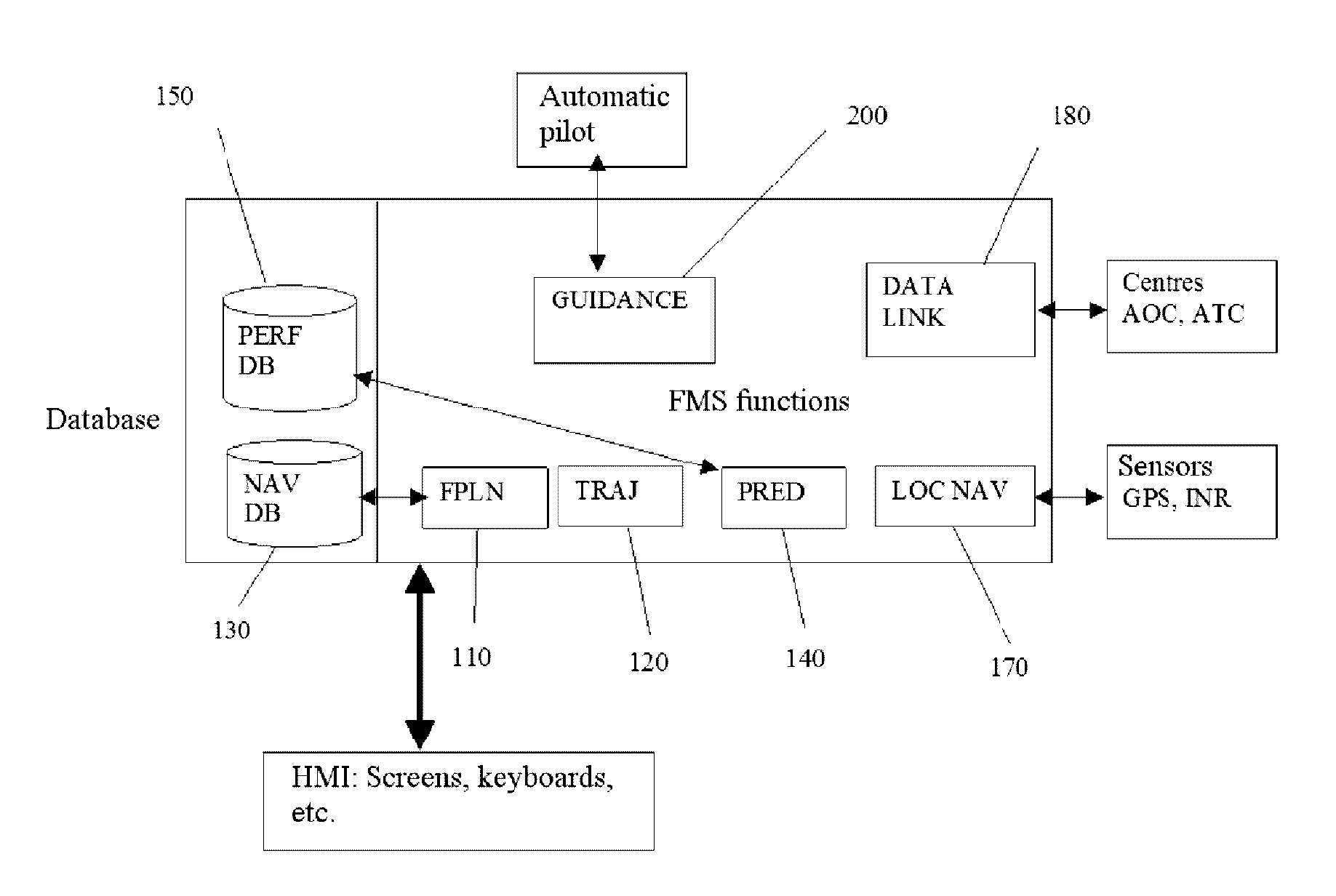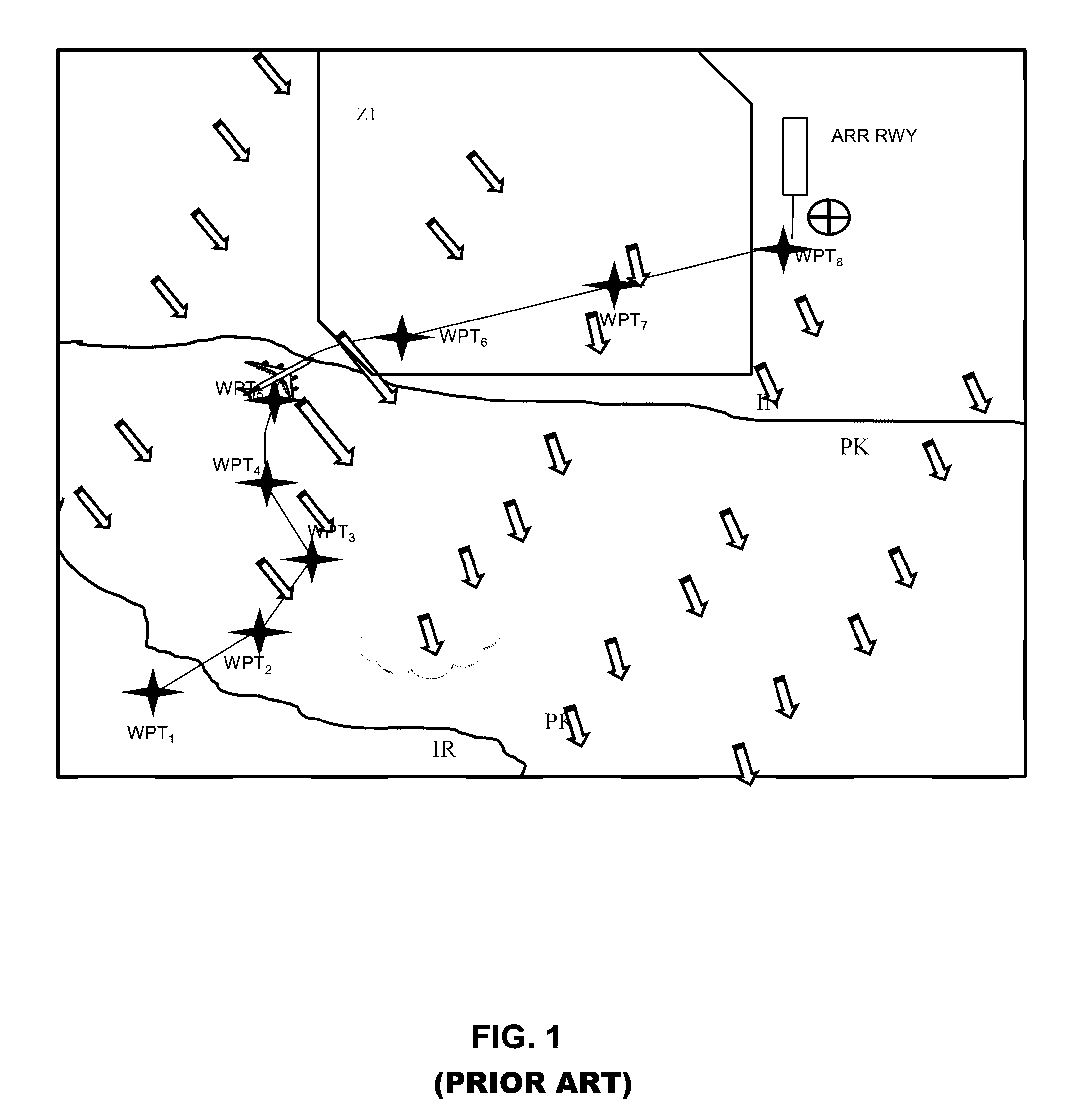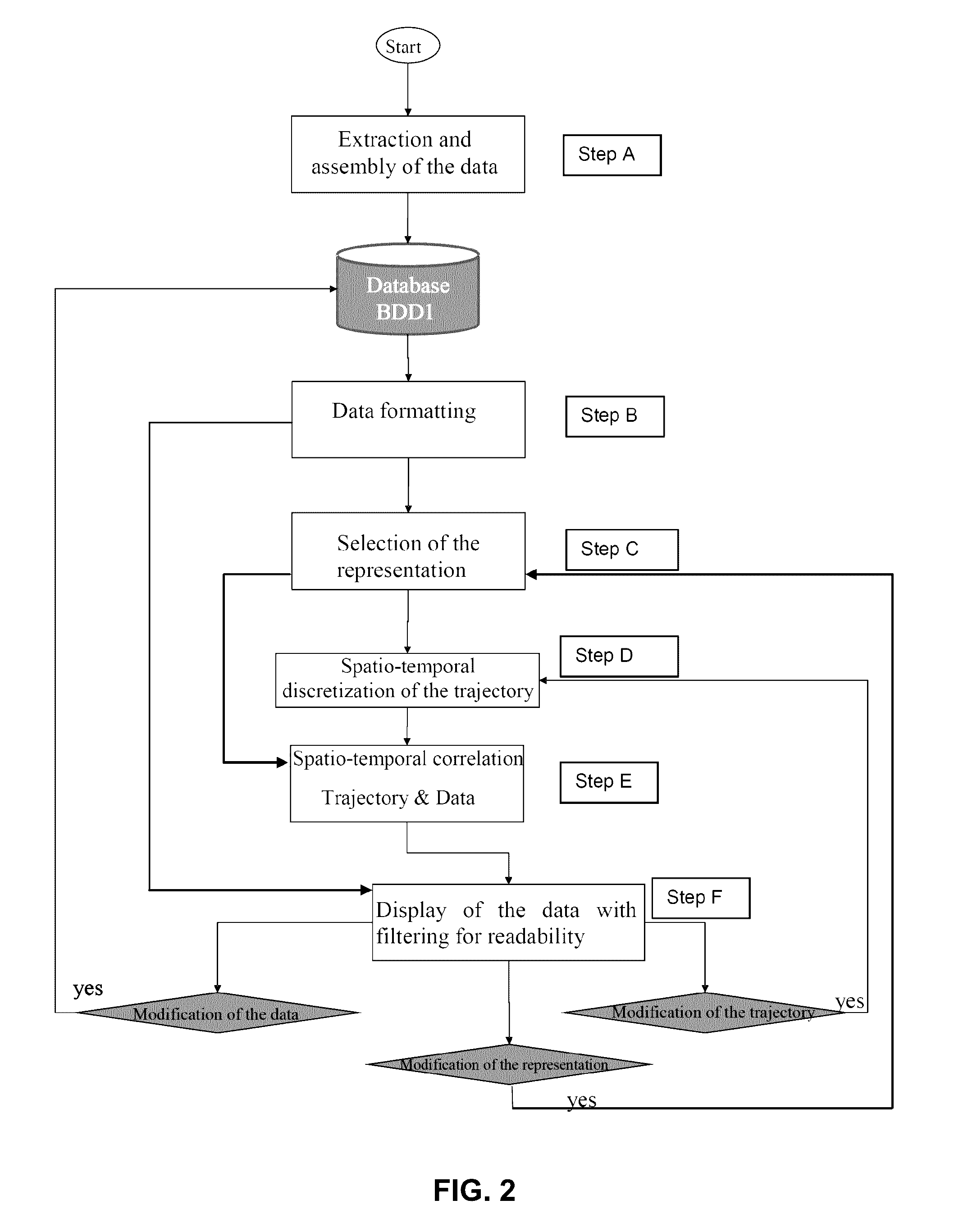Method for assisting the navigation of an aircraft with correlation of dynamic information with a 4D flight trajectory
a technology of dynamic information and flight trajectory, applied in the direction of navigation instruments, instruments, static indicating devices, etc., can solve the problems of complex work, inability to allow, and difficult to manage dynamic information than static information, so as to achieve optimal readability and appreciation of the situation
- Summary
- Abstract
- Description
- Claims
- Application Information
AI Technical Summary
Benefits of technology
Problems solved by technology
Method used
Image
Examples
first embodiment
[0256] described with reference to FIG. 8b, the BDD1 is hosted in the FMS as a new database in which the data from the equipment (sensors, etc.) other than the FMS are stored.
[0257]The potential discretization of the trajectory is carried out by the module TRAJ.
[0258]The selection of the data is carried out by the selection HMI.
[0259]Based on the selections carried out by the pilot, the correlation of the time data is carried out by the module PRED, together with the conditioning and the transmission of the data to the display screens, the trajectory and the data being transmitted to the display screens in the cockpit (Navigation Display and / or Vertical Display).
[0260]Certain functions may be provided by modules integrated into an EFB (Electronic Flight Bag), an ANS (Airport Navigation System, i.e. ground taxiing system) or a portable PC or tablet, or lastly onto screens of ground tools, with for example a dedicated correlation system.
second embodiment
[0261] described with reference to FIG. 8c, the FMS (or EFB or ANS) supplies the trajectory to the BDD1. The other equipment (ground or on-board) sends the data to be displayed in the BDD1. A correlator is responsible for the exploitation of the data from the various pieces of equipment, on the basis of pilot selections via the selection HMI. The correlator formats the trajectory and the data and sends them to the CDS for displaying.
third embodiment
[0262] described with reference to FIG. 8d, the correlation of the data with the trajectory is carried out by the CDS, on the basis of pilot selections made via the selection HMI. According to this embodiment, the FMS (or EFB or ANS) supplies the trajectory in the BDD1. The other equipment (ground or on-board) sends the data to be displayed in the BDD1.
[0263]Other embodiments are possible in which the BDD1 is no longer a centralized database, but each piece of equipment stores its data and, during the correlation step, the data from each piece of equipment is read.
PUM
 Login to View More
Login to View More Abstract
Description
Claims
Application Information
 Login to View More
Login to View More - R&D
- Intellectual Property
- Life Sciences
- Materials
- Tech Scout
- Unparalleled Data Quality
- Higher Quality Content
- 60% Fewer Hallucinations
Browse by: Latest US Patents, China's latest patents, Technical Efficacy Thesaurus, Application Domain, Technology Topic, Popular Technical Reports.
© 2025 PatSnap. All rights reserved.Legal|Privacy policy|Modern Slavery Act Transparency Statement|Sitemap|About US| Contact US: help@patsnap.com



